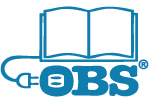My bounty is as boundless as the sea,
My love as deep; the more I give to thee,The more I have, for both are infinite.
—Shakespeare, Romeo and Juliet
Back when books were things, it was easier to measure success or failure based on quantifiable metrics like print runs, sales, years in print, citations. Paper books are finite, present as mass; they take up shelf space. If I loan you my copy of Romeo and Juliet, I’m left empty-handed. Just as if you pay me to siphon the gas out of my tank and put it into yours, you drive and I stand still. That’s the economy of scarcity. Publishers are still struggling to impose on their e-books these outdated business models from the age of print, and finding that friction results.
Readers don’t appreciate it when their e-reader screens go dark in midsentence because the read-ometer stopped running; librarians suffering from shrinking wartime budgets resent paying for “a copy” of an e-book (which is really quite ethereal in nature and not a copy at all) and then being required to treat it like a finite artifact and loan it out one at a time, rather than offering network access to all readers.
When mass transmutes into the infinite, when books become e-books, the age of abundance arrives and the rules change. New roles for publisher, author, and reader are evolving, and new tools are required to establish and convey the value of ideas and information. What used to be freely exchanged—like knowledge—one now pays consultants for. What used to be sold—like a copy of a book—is free. We need to develop new value paradigms to accommodate the creation and evolution of knowledge in and between humans, perhaps adapting our old business models from books (per-copy), entertainment (performance), and school (tuition)—but perhaps the Internet-based value exchange is in fact something startlingly new.
Meantime, while there is so much struggle in the publishing business about commoditizing current-copyright content for sale, how to do it, what to charge whom for how much, a tidal wave of unprecedented proportions swells beneath and may soon force publishers to recognize that neither they nor their business models may ultimately prevail in the Internet-based publishing domain. The online newcomers to publishing do “get it,” but large and impressive as it is, Google Print is but one company scanning in books and making them findable through its proprietary technology.
The catalyst for change can be found in the organizations that capitalize on the free, open, and distributed architecture of the Internet itself, like the Open Content Alliance and Europe’s books2ebooks, which, day after day, are scanning in the millions upon millions of books from libraries all over the world, and making them freely available. They are making available to us the books that form our collective recorded world culture since the time of the first book. Searchable. Alterable. Taggable. Query-able. Recombine-able. This is the new abundance, and what are we to make of it?
